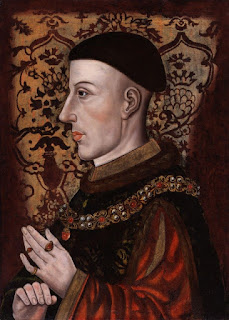Hace pocos
días finalicé la lectura de Agincourt, de Juliet Barker (http://www.julietbarker.co.uk/). La verdad es que
quería documentarme sobre la guerra de los 100 años, y como las críticas de
este libro han sido buenas me decidí a leerlo.
Mi idea
original era profundizar sobre los movimientos estratégicos antes y después de
la batalla, pero me llevé una agradable sorpresa. El libro no solo incluía
estos temas, sino también una explicación de la situación política heredada de
finales del siglo XIV, la educación de Enrique V, la forma en que se financió
la campaña, su logística… por no hablar de las relaciones entre nobles
franceses y la situación de guerra civil entre los Borgoñones y los Armagnac.
¿Y qué otro libro sobre historia militar te dedica unas páginas a las
diferencias entre médicos y cirujanos y sus primeros colegios?
Creo que es un
libro de lo más recomendable, y ya estoy esperando a su segunda parte (Conquest).
A few days ago I finished reading Agincourt, from
Juliet Barker (http://www.julietbarker.co.uk/). In fact I wanted to read something about the 100 years war, and
as the comments on this book were quite good I decided to read it.
My original idea war to learn more on the strategical
movements before and after the battle, but I’ve had quite a nice surprise.The
book not only included this topics, but also an explanation of the political
situation from the end of the XIVth Century, the raising of Henry V, how he
financed this campaign, the logistics…even the relations between the different French
nobles and the civil war situation between the Burgundians and the Armagnac.
And which military history book devotes
some pages to the difference between medics and surgeons and their first
colleges?
I think that this is a most recommendable book, and I’m already waiting to read the
second part (Conquest).

